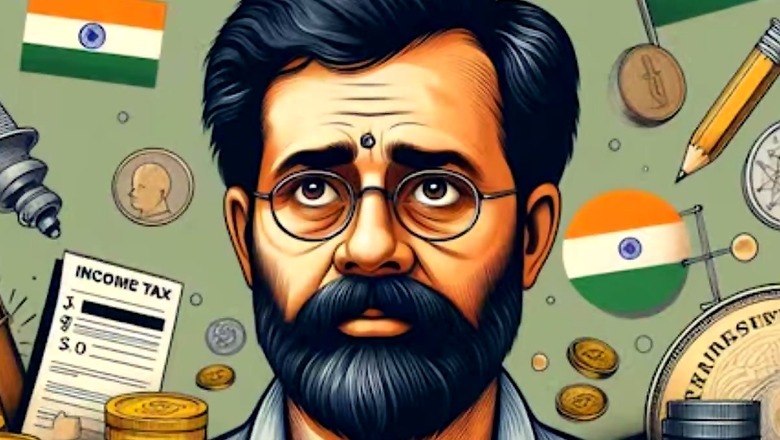
views
Narendra Modi has been sworn in as the Prime Minister for his third consecutive term after the NDA’s win in the General elections. Nirmala Sitharaman has been retained as the Minister for Finance for a second consecutive term. The Ministry of Finance introduced Goods and Services Tax (GST) in India in 2017, when Arun Jaitley was in charge of the Ministry of Finance. Although the GST had its fair share of critics, the total GST collection touched a record Rs 2.10 trillion in April, reflecting robust economic growth. In the financial year 2023-24, the government collected personal tax of Rs 12.01 lakh crore, which also included Securities Transaction Tax (STT).
With the new government being formed just two days back, it makes for an interesting read to deduce what expectations the common man has from Modi government 3.0, in relation to taxes and what are the kind of obstacles the government has to face. It is interesting to note that the income tax slabs and rates have not been revised by the government since 2020-21.
This year, the BJP has formed an alliance with Nitish Kumar and Chandrababu Naidu. Hence, Bihar and Andhra Pradesh may demand a change in income tax slabs and rates. The government has the ability to alter the income tax brackets or adjust tax rates. Data indicates that from 2020 to 2024, the proportion of corporate tax in direct taxes has steadily declined, while the proportion of personal tax has risen. In 2020, corporate tax accounted for 53 percent, but this dropped to 46.9 percent by 2024. Conversely, the share of personal tax increased from 46.5 percent to 53.3 per cent. It is anticipated that there might be some changes in this trend, with the share of personal tax likely to decrease this time.
Earlier, the government allowed taxpayers to choose between the old and new tax regime, but this time the government may try to strike a balance between the two regimes. Citizens who fell between the income bracket of Rs 3 lakh per annum were exempted from tax in the new regime while it was Rs 2.5 lakh in the old regime. When the government presents the budget this time, it is likely that up to Rs 3 lakh will be kept tax-free in both tax regimes. The insurance sector and tax experts have consistently emphasised that insurance is essential and beneficial during difficult times. In the new regime, there should be an exemption on insurance amounts exceeding Rs 7 lakh.
For a long time, corporations have been raising various demands which include requests to lower GST rates, simplify the return process, expedite refunds, and reduce the compliance burden. Consequently, the government will face pressure to lower tax rates, especially in sectors with high rates. Traders have frequently called for a simpler return filing process. In January, the Confederation of All India Traders (CAT) urged the government to review GST laws to make the system simpler. CAT proposed the creation of a GST coordination committee comprising officials and traders at the district level to resolve tax-related issues locally.
Praveen Khandelwal, now a member of Parliament from Delhi’s Chandni Chowk and the National General Secretary of CAT, has advocated for a special income tax slab for businesses, similar to that for companies, and the removal of outdated laws. Given his position in the government, it is expected that Khandelwal will effectively communicate traders’ concerns to Parliament.
When it comes to billionaire tax, the issue is up for discussion at the G20 summit to be held in Rio de Janeiro in November of this year. A proposal to impose a global minimum tax on billionaires supported by the finance ministers of Brazil, France, Spain, South Africa and Germany is up for discussion.
The coalition government at the centre will try to maintain a balance on not raising the tax slab too high as to make it a burden for taxpayers or keeping it too low which can reduce revenue and hamper development. The opposition this time is stronger with way more seats in the Parliament and so the government is likely to be kept in check.




















Comments
0 comment